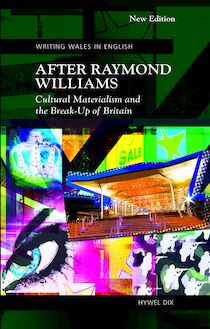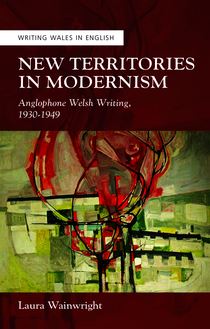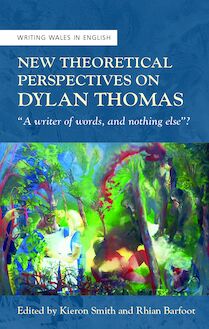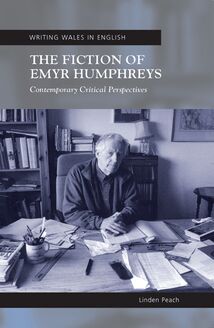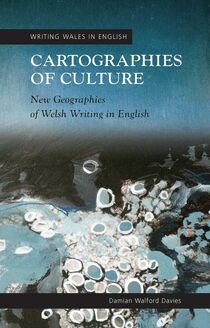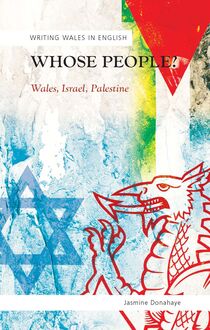-
 Univers
Univers
-
 Ebooks
Ebooks
-
 Livres audio
Livres audio
-
 Presse
Presse
-
 Podcasts
Podcasts
-
 BD
BD
-
 Documents
Documents
-
- Cours
- Révisions
- Ressources pédagogiques
- Sciences de l’éducation
- Manuels scolaires
- Langues
- Travaux de classe
- Annales de BEP
- Etudes supérieures
- Maternelle et primaire
- Fiches de lecture
- Orientation scolaire
- Méthodologie
- Corrigés de devoir
- Annales d’examens et concours
- Annales du bac
- Annales du brevet
- Rapports de stage
La lecture à portée de main
Vous pourrez modifier la taille du texte de cet ouvrage
Découvre YouScribe en t'inscrivant gratuitement
Je m'inscrisDécouvre YouScribe en t'inscrivant gratuitement
Je m'inscrisEn savoir plus
Vous pourrez modifier la taille du texte de cet ouvrage
En savoir plus

Description
Sujets
Informations
| Publié par | University of Wales Press |
| Date de parution | 01 octobre 2020 |
| Nombre de lectures | 0 |
| EAN13 | 9781786837295 |
| Langue | English |
Informations légales : prix de location à la page 0,0450€. Cette information est donnée uniquement à titre indicatif conformément à la législation en vigueur.
Extrait
Contemporary Irish and Welsh Women’s Fiction: Gender, Desire and Power
Writing Wales in English
CREW series of Critical and Scholarly Studies General Editor: Professor M. Wynn Thomas (CREW, Swansea University)
This CREW series is dedicated to Emyr Humphreys, a major figure in the literary culture of modern Wales, a founding patron of the Centre for Research into the English Literature and Language of Wales , and, along with Gillian Clarke and Seamus Heaney, one of CREW ’s Honorary Associates. Grateful thanks are extended to Richard Dynevor for making this series possible.
Other titles in the series:
Stephen Knight, A Hundred Years of Fiction (0-7083-1846–0) Barbara Prys-Williams, Twentieth-century Autobiography (0-7083-1891-6)
Kirsti Bohata, Postcolonialism Revisited (0-7083-1892-4) Chris Wigginton, Modernism from the Margins (978-0-7083-1927-7)
Contemporary Irish and Welsh Women’s Fiction: Gender, Desire and Power
Writing Wales in English
Linden Peach
© Linden Peach, 2007
All rights reserved. No part of this book may be reproduced, stored in a retrieval system, or transmitted, in any form or by any means, electronic, mechanical, photocopying, recording or otherwise, without clearance from the University of Wales Press, University Registry, King Edward VII Avenue, Cathays Park, Cardiff, CF10 3NS. www.uwp.ac.uk
British Library Cataloguing-in-Publication Data
A catalogue record for this book is available from the British Library.
ISBN: 978-0-7083-1998-7 eISBN: 978-1-7868-3729-5
The right of Linden Peach to be identified separately as author of this work has been asseted by him in accordance with the Copyright, Designs and Patents Act 1988.
Published with the financial assistance of the Higher Education Funding Council for Wales.
The publisher has no responsibility for the persistence or accuracy of URLs for any external or third-party internet websites referred to in this book, and does not guarantee that any content on such websites is, or will remain, accurate or appropriate.
Cover image:© Barnaby Hall/Getty Images
For Angela
Contents
General Editor’s Preface
Preface
Acknowledgements
1 Introduction
2 Unspoken Histories: Groundbreaking Short Fiction
3 Unspoken Desires: Writing Same-sex Relationships
4 ‘Heroic Spaces’: Re-imaging ‘Ordinary’ Lives
5 The Changing Self
6 Fields of Vision
7 Religion, Spirituality and Identity
Select Bibliography
General Editor’s Preface
The aim of this series is to produce a body of scholarly and critical work that reflects the richness and variety of the English-language literature of modern Wales. Drawing upon the expertise both of established specialists and of younger scholars, it will seek to take advantage of the concepts, models and discourses current in the best contemporary studies to promote a better understanding of the literature’s significance, viewed not only as an expression of Welsh culture but also as an instance of modern literatures in English world-wide. In addition, it will seek to make available the scholarly materials (such as bibliographies) necessary for this kind of advanced, informed study.
M. Wynn Thomas, Director, CREW (Centre for Research into the English Language and Literature of Wales) Swansea University
Preface
There is a new confidence in contemporary Irish and Welsh women’s fiction. One of the reasons for this is that it is inseparable, as this book will demonstrate, from the social, economic and cultural developments in these countries. Another is the relationship that the authors have to the ‘English’ in which they write, which may be determined by gender, sexuality, class and/or race. There is for many of them a sense of speaking in a voice that is ‘different’ about subjects on which their national literatures have been silent or have approached in less candid ways.
Thus, the best contemporary writing has a strong exploratory dimension to it and a sense of ‘venturing out’. It is ‘new’ in that it embraces ‘difference’, ‘rupture’, ‘interrogation’ and ‘redefinition’. In many cases confidence in language, a newfound voice and radical subject matter sit alongside ambivalence, complexity and even a sense of ‘uncertainty’, the result of the author having embarked upon something that is definable as ‘new’ in the above terms. In my previous work on contemporary Irish fiction, cited in the course of this book, I have drawn on the postcolonial scholar Homi Bhabha’s thesis that when what has been previously marginalized or silenced finds or is given a voice, a ‘time lag’ occurs between ‘relocation’ and ‘reinscription’. Much contemporary writing from Ireland and Northern Ireland, and now I argue from Wales also, may be perceived as occupying a ‘time lag’. Indeed, it becomes in effect an exploration of the nature of the space between ‘relocation’, the initial movement from marginalization, and ‘reinscription’, a process of redefinition and revisioning, of which Bhabha speaks.
This transition has been important to the history of black, gay, postcolonial and women’s writing. However, it is not so much the transition itself as the nature of the space of redefinition that has interested me in Irish and Welsh writing, where I differ from Bhabha in seeing it as a space of ambivalence and complexity. This is particularly true of contemporary Irish and Welsh writing by women.
For reasons I suggest in Chapter 1 , the flourishing of women’s writing in late twentieth-century Ireland, Northern Ireland and Wales has been something of a phenomenon. Yet this is the first comparative study of Irish and Welsh women’s writing. Its focus is the interrelated themes of gender, desire and power which have proved to be of particular importance to women writers from Ireland, Northern Ireland and Wales and which more than many other subjects have taken them into the kind of liberating but uncertain space of which I have been talking.
Although this book’s central concern is with gender and desire, its thematic discussion is much wider, for, as I point out at the outset, these subjects push back the boundaries of identity, nationhood, belonging, community, religion and home. It, therefore, has a relevance that extends beyond the particular authors and texts discussed. But whilst the texts have been chosen with this in mind, they have also been selected so as to represent the variety of women’s social, cultural and religious backgrounds in Ireland, Northern Ireland and Wales.
In arguing that the exploration of gender and desire across diverse situations and origins in Irish and Welsh women’s fiction is often used to rethink traditional notions of identity, nation and home, I am indebted to a number of cultural and literary critics. These include, again, Homi Bhabha to whom I am indebted for his reconfiguration of national geography in terms of ‘difference’ and even ‘tense cultural locations’; the Welsh critic M. Wynn Thomas for his development of Bhabha’s ideas about ‘internal difference’ into a concept of, in both senses, ‘corresponding’ cultures; the Irish scholar Conor McCarthy for distinguishing between the different experiences of ‘modernity’ in different countries and locales; and the postcolonial critic Gayatri Spivak for her emphasis upon diversity and hybridism which is particularly relevant to Ireland and Wales not only in the general sense but to their developing multiculturalism.
Despite the wider territories into which gender and desire inevitably take the text and the reader, not least because of the way in which they are implicated in social and cultural structures, the subject of desire per se cannot be gainsaid. The recurring interest in desire in contemporary Irish and Welsh women’s writing is in the way in which what has been ‘silenced’ or marginalized’ is not only ‘different’ but ‘other’. The focus in the best writing is on exploring desire within the whole complex process of ‘othering’ and how this is implicated in social definitions of gender, the cultural determination of sexual behaviour and the binary language often used to define, polarize and stigmatize particular types of consensual sexual activity. In addressing this subject, the book necessarily makes use of psychoanalytic and poststructural critical approaches, especially in the analysis of symbolism. But it also draws upon other recent and current ideas. Given the emphasis upon entering a complex and ambivalent space, the French historian Foucault’s definitions of limit and taboo are especially pertinent to some of the texts discussed, as is the American cultural scholar Judith Butler’s concept of a ‘performative’ gender identity.
The critical readings in this book are developed through select representations of gendered desire. All of these are symbolically complex, encapsulating the revisionism, anxiety and ambivalence in the ‘time lag’ with which I began. Taken together, from across the different texts, they present the reader with a variety of perspectives on, and approaches to, desire, gender and power. For example, in a short story by one of a number of emergent black or mixed race Welsh writers, Leonora Brito, a young, mixed race woman begins her touring stage career in Wales, mimicking and mocking the discourses that have defined the black, female body. Unfortunately, her dream ends with her swaying before a coconut tree on a London stage beneath a yellowy moon, redolent of the black artist Josephine Baker who was, of course, much more successful in the theatre and music hall. The moon, a symbol of female aspiration and desire, is significantly the colour of decay and degeneration. This is a story that can be productively read in relation not only to Irish fiction but to the importance of African American dance as a space in which the black body, especially the black female body, and black identity generally were ‘relocated’ and ‘reinscribed’. In a novel by the celebrated writer associated with both Ireland and Northern Ireland Jennifer Johnston
-
 Univers
Univers
-
 Ebooks
Ebooks
-
 Livres audio
Livres audio
-
 Presse
Presse
-
 Podcasts
Podcasts
-
 BD
BD
-
 Documents
Documents
-
Jeunesse
-
Littérature
-
Ressources professionnelles
-
Santé et bien-être
-
Savoirs
-
Education
-
Loisirs et hobbies
-
Art, musique et cinéma
-
Actualité et débat de société
-
Jeunesse
-
Littérature
-
Ressources professionnelles
-
Santé et bien-être
-
Savoirs
-
Education
-
Loisirs et hobbies
-
Art, musique et cinéma
-
Actualité et débat de société
-
Actualités
-
Lifestyle
-
Presse jeunesse
-
Presse professionnelle
-
Pratique
-
Presse sportive
-
Presse internationale
-
Culture & Médias
-
Action et Aventures
-
Science-fiction et Fantasy
-
Société
-
Jeunesse
-
Littérature
-
Ressources professionnelles
-
Santé et bien-être
-
Savoirs
-
Education
-
Loisirs et hobbies
-
Art, musique et cinéma
-
Actualité et débat de société
- Cours
- Révisions
- Ressources pédagogiques
- Sciences de l’éducation
- Manuels scolaires
- Langues
- Travaux de classe
- Annales de BEP
- Etudes supérieures
- Maternelle et primaire
- Fiches de lecture
- Orientation scolaire
- Méthodologie
- Corrigés de devoir
- Annales d’examens et concours
- Annales du bac
- Annales du brevet
- Rapports de stage
